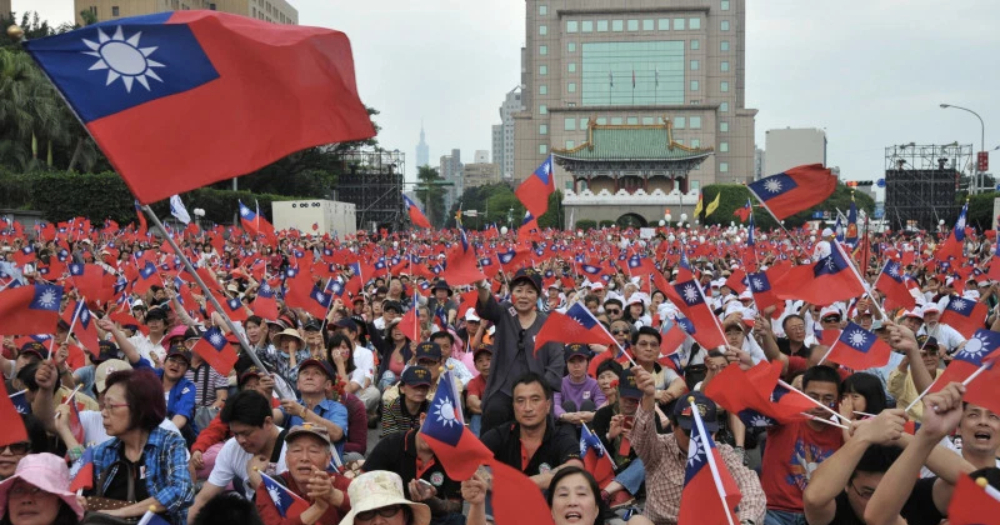Taiwan is a self-ruled island.
Operates like its own country
It has its own constitution, its own democratically-elected government, its own currency, and about 300,000 active troops in its military.
Its approximately 23 million citizens travel on its own passport as well.
Essentially, it operates like an independent country.
However, it is treated like a pariah and excluded from most international memberships, such as the World Health Organisation -- a situation that experts say could be catastrophic to public health in the region.
Taiwan has to be recognised by other countries to be a 'normal' country
That Taiwan is not considered a 'normal' country is simply because it is not recognised as a country by itself.
Taiwan does not occupy a seat in the United Nations, and only 15 countries recognise its government.
The 193-member international organisation currently views the People's Republic of China (PRC) in Beijing as having the right to speak for the island, despite the PRC never controlling the island before.
According to renowned German jurist Lassa Oppenheim, who wrote in International Law: A Treatise, recognition from other states is required for a country to be a member of the international family.
James Crawford, an American professor of International Law, also argued in The Creation of States in International Law that Taiwan is not an independent country as it has never explicitly proclaimed independence.
The Republic of China (ROC), as Taiwan is officially known, defines ROC territories as including mainland China in its constitution, as well as the South China Sea and Mongolia (although Mongolia is now recognised by the ROC as an independent country, and is excluded from official maps).
Allies dropping Taiwan one after another under Tsai
Since Taiwan's President Tsai Ing-wen took office in 2016, Beijing has ramped up its pressure internationally.
Seven states switched allegiance to Beijing from Taiwan after Tsai became president, as compared to just one one during former president Ma Ying-jeou's eight-year presidency.
And the number of Taiwan's diplomatic allies is set to drop even further as the trend of small countries in the Pacific, Caribbean and Central America switching diplomatic recognition from Taipei to Beijing continues.
But Taipei still maintains unofficial relations with at least 47 countries — including Singapore — despite them not having formal diplomatic ties with each other, through representative offices that act as de facto embassies.
To further understand Taiwan's complicated position on the world stage, here's a brief explanation on how the Taiwan as we know today, came about.
Fled to Taiwan from the mainland, but never got the chance to retake it
The ROC was first established in the city of Nanjing in China in 1912.
It ruled China under Chiang Kai-shek's Nationalist Party, or the Kuomintang (KMT).
After it was defeated by Mao Zedong's Communist forces in 1949, the KMT fled to Taiwan from the mainland.
During that time, Taiwan had been a Japanese colony for 50 years.
It was surrendered to the ROC government in 1952 under the Treaty of Taipei, although Japan later revoked the treaty when it established diplomatic relations with the PRC.
In subsequent years, Chiang continued to harbour the ambition of retaking the mainland, despite the possibility growing slimmer by the day.
Chiang's obsession with retaking the mainland was somewhat carried on by his son, Chiang Ching-kuo, according to The Atlantic.
His government had even turned down the International Olympic Committee's suggestion of competing in the Olympics under the name "Taiwan", and insisted on a name with a link to China.
They finally settled on "Chinese Taipei", a name that Taiwanese athletes still compete under today.
The delusion of retaking the mainland, however, was later played down by subsequent presidents.
Today, the PRC and the KMT have a tacit agreement that there is only "one China", with both sides interpreting what it means differently.
The Democratic Progressive Party under Tsai, however, has yet to reaffirm the consensus, further fueling tensions with Beijing as a result.
Beijing still sees Taiwan as a wayward province, and has not ruled out the use of force to bring it back to the fold of the mainland.
Taiwan can't declare independence despite having de facto independence
This is why Taiwan has never explicitly claimed independence, as doing so would destabilise the delicate balance between China and itself, not to mention Beijing might use it as justification to launch a war on Taiwan.
Taiwan is also extremely cautious of committing any act that implies it is independent.
Huang Ting-hui, a Taiwanese official who oversees Hong Kong affairs, told the South China Morning Post that to do anything which goes against the "one China" principle is tantamount to “destroying the national sovereignty” of Taiwan, and that is definitely not acceptable.
This is why the majority of the Taiwanese people prefer to preserve the status quo with China.
And it's not just the Taiwanese themselves either.
Many countries and corporate entities are unable to allude to Taiwan's independence without incurring the wrath of Beijing.
The United States, however, is the only country that does not formally recognise Taiwan, but is willing to receive its president.
Top image via Mandy Cheng/AFP
If you like what you read, follow us on Facebook, Instagram, Twitter and Telegram to get the latest updates.
